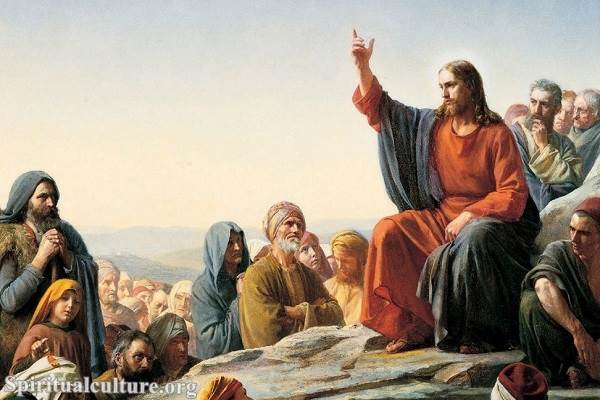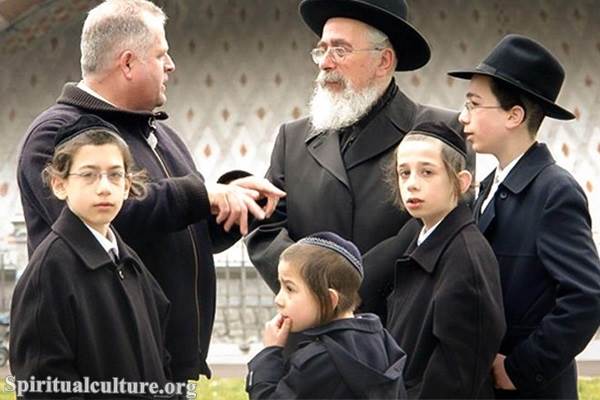In every human heart, there is a quiet ache for fairness — a longing to see the innocent defended, the oppressed lifted, and the world made right. This yearning is not merely emotional; it is spiritual. It echoes the ancient Jewish belief that justice is not a passive ideal but a divine demand — one that flows from the very nature of God.
In this article, Spiritual Culture explores how justice and social responsibility are deeply rooted in Jewish tradition. From the Torah’s bold commandments to the prophetic cries for righteousness, Judaism presents a compelling vision of a just society — not as a utopian dream, but as a daily obligation. We’ll look at how Jewish teachings guide individuals and communities to act justly, love mercy, and walk humbly with God — and how these teachings continue to shape global conversations about ethics, human rights, and social change.
Justice as a Divine Imperative
“Tzedek, Tzedek Tirdof” — “Justice, Justice You Shall Pursue”
These famous words from Deuteronomy 16:20 are at the heart of Jewish moral vision. But why repeat the word “justice”?
Repetition as Urgency
The rabbis teach that the doubling of tzedek (justice) in the Torah verse signals urgency, intensity, and universality. Justice is not only a value; it’s a pursuit. It must be sought in all circumstances, not just when it is easy or convenient.
Beyond Legal Fairness
Jewish justice (tzedek) is not merely legalistic. It includes compassion, equity, and concern for those on the margins. It integrates law with love, rules with righteousness.
“Let justice roll on like a river, righteousness like a never-failing stream!” — Amos 5:24
This prophetic cry reflects the Jewish understanding that justice is not static; it is active, flowing, cleansing, and alive. It’s not enough to build a society based on laws — it must be suffused with moral urgency.
The Concept of Tikkun Olam — Repairing the World
A Partnership with God
Tikkun olam, meaning “repairing the world,” reflects a central Jewish belief: humanity has a responsibility to partner with God in healing creation.
Origin and Evolution
Originally a mystical idea from Kabbalistic Judaism, tikkun olam has become a modern ethical banner. It calls Jews to engage in social justice, environmental stewardship, and activism.
Action over Abstraction
In Jewish ethics, intention (kavanah) matters, but action reigns supreme. One must not only think about justice — one must do justice.
Examples of Tikkun Olam Today:
- Feeding the hungry through community kitchens and food drives
- Fighting systemic inequality and racial injustice
- Advocating for refugees and the displaced
- Supporting ecological sustainability
This practice of repairing the world reveals a spiritual truth: justice is sacred work.
The Prophets and the Cry for Justice
Prophetic Voices in Ancient Israel
In the Hebrew Bible, prophets were not fortune-tellers — they were moral whistleblowers. They confronted kings, challenged corruption, and insisted on righteousness.
Isaiah, Jeremiah, and Amos
These figures stand as spiritual giants, not because they predicted the future, but because they spoke truth to power.
“Learn to do good; seek justice, rescue the oppressed, defend the orphan, plead for the widow.” — Isaiah 1:17
This commandment reveals the core of Jewish social responsibility: care for the vulnerable is not charity — it is justice.
Justice as Worship
Many prophets condemned empty ritual. They declared that no amount of sacrifice or religious observance could substitute for ethical living.
“What does the Lord require of you but to do justice, and to love kindness, and to walk humbly with your God?” — Micah 6:8
This verse has become a cornerstone for Jewish and interfaith social activism.
Justice in Jewish Law (Halakha)
Building a Just Society, One Law at a Time
Jewish law (halakha) is a comprehensive system governing everything from prayer to business ethics — and justice runs through it all.
Fairness in Business
The Torah forbids dishonest weights and measures (Leviticus 19:35–36). Rabbinic law elaborates on fair wages, ethical contracts, and prohibitions against exploiting workers.
“You shall not oppress a hired laborer… You must pay them their wages on the same day.” — Deuteronomy 24:14–15
Protection of the Stranger
Thirty-six times, the Torah reminds Jews to love the stranger — more than any other commandment. This emphasis reflects the memory of Egyptian slavery and the call to build a society of compassion.
“You shall not oppress the stranger, for you know the heart of the stranger, for you were strangers in Egypt.” — Exodus 23:9
Justice, in Jewish thought, begins by remembering suffering — and ensuring it is not repeated.
The Role of Community and Mutual Responsibility
Kol Yisrael Arevim Zeh Bazeh — “All of Israel is Responsible for One Another”
This Talmudic teaching underscores a profound spiritual truth: justice is not only an individual duty; it is a collective calling.
Communal Responsibility
From ancient times, Jewish communities took care of widows, orphans, and the poor. Institutions like maot chittin (charity for Passover food) and hekdesh (communal funds for the sick) embodied this ethic.
Synagogue as a Social Hub
In traditional Jewish life, the synagogue was not just a place of worship — it was a center for justice work: distributing charity, resolving disputes, and organizing aid.
Jewish Ethics in the Modern World
From Shtetl to Global Citizenship
Jewish communities have long been at the forefront of social justice movements — from civil rights to refugee advocacy.
Jewish Involvement in Civil Rights
In the United States, Jews played a key role in the Civil Rights Movement of the 1960s. Rabbi Abraham Joshua Heschel marched with Dr. Martin Luther King Jr., declaring, “I felt my legs were praying.”
Jewish Nonprofits and Activism
Organizations like the American Jewish World Service and HIAS (originally Hebrew Immigrant Aid Society) continue to work for human rights and refugee protection around the globe.
The Jewish Ethos in Public Policy
Modern Jewish thinkers like Rabbi Jonathan Sacks and thinkers within Reform and Conservative Judaism have emphasized a justice ethic rooted in covenant — a mutual commitment between God and humanity to build a moral society.
Justice as Spiritual Practice
Justice as Prayer in Action
In Judaism, justice is not a distraction from spirituality — it is spirituality.
A Mitzvah of the Heart and Hand
Each act of justice is a mitzvah, a sacred commandment. Feeding the hungry, clothing the poor, visiting the sick — these are spiritual disciplines equal to, or greater than, ritual observance.
“The world stands on three things: on Torah, on service, and on acts of loving-kindness.” — Pirkei Avot 1:2
Shabbat and Social Balance
Even Sabbath observance reflects social responsibility. The commandment to rest applies to servants and animals — highlighting dignity and rest for all.
Challenges and Tensions
Justice Is Complex
Jewish thought does not offer simplistic answers. Balancing justice with peace (shalom), mercy (chesed), and security has always required wisdom and humility.
Justice vs. Mercy
Sometimes, strict justice can harm rather than heal. Jewish tradition urges judges and individuals to consider the human context — and to let mercy guide justice, not erase it.
Economic Justice Debates
Debates about wealth redistribution, charity vs. systemic change, and the limits of obligation are vibrant within Jewish legal and philosophical thought.
Reflect and Reimagine
Justice in Judaism is not an abstract philosophy or a political preference. It is a sacred path — one that flows from Torah, prophecy, and lived tradition. It is the work of tikkun olam — healing what is broken in the world and within ourselves.
Whether you are Jewish or not, the Jewish view of justice offers a powerful invitation: to make righteousness your way of life, to see others not as burdens but as brothers, and to live with the deep conviction that holiness and justice walk hand in hand.
May we each ask, as the prophets once did: “What does the Lord require of me?” And may the answer lead us toward compassion, courage, and collective healing.
“Spiritual Culture” is honored to walk with you on this journey — toward a world where justice is not only dreamed of, but lived.



